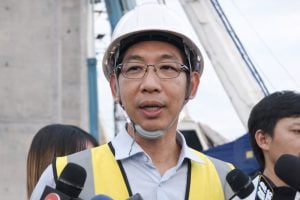Former Kiwi PM commends Thailand for cannabis decriminalisation

Helen Clark, former New Zealand Prime Minister and a current member of the International Commission Against the Death Penalty, applauded Thailand for decriminalising cannabis. However, she also urged the country to put an end to capital punishment, particularly for drug-related offences.
During the Harm Reduction International Conference 2023 (HR23), Clark commended Thailand as one of the countries that has managed to successfully decriminalise cannabis, which she believes is a crucial step in ending unnecessary criminalisation. Clark told Bangkok Post…
“In Thailand, there have been prisons with a large number of people convicted of drug offences. [It is] completely unnecessary and wrong to criminalise individuals who are using drugs. We would save significantly on the police system and the court system if we move away from the criminalisation [of drugs] and promote good health for those using drugs.”
Cannabis was officially removed from Thailand’s Category 5 narcotics list in June last year. Possession, cultivation, distribution, consumption, and sale of all cannabis plant materials have since been legalised, while cannabis extracts and products containing over 0.2% THC by weight remain categorised as narcotics.
Import and export of cannabis continue to be regulated, and recreational use is discouraged but legal. Sales are prohibited to minors below 20 years old, pregnant women, and breastfeeding mothers. Cannabis smoke is deemed a public nuisance and restricted in public spaces.
Clark, who is also the current chair of the Global Commission on Drug Policy, addressed harm reduction strategies, including decriminalisation of drug use and campaigning against the death penalty in countries around the world.
Southeast Asia is known for its stringent approach to drugs. Although the decriminalisation of cannabis in Thailand is seen as encouraging, and Malaysia has abolished its mandatory death penalty for certain drugs and other offences, Clark emphasised the need for harm reduction in drug policies.
Capital punishment for drug offences, which is still present in Thai law, is disproportionate and illegal under international law, according to Clark. The 2022 World Drug Report by the United Nations Office on Drugs and Crime (UNODC) estimated that around 284 million people had used an illicit or controlled drug within the previous 12 months, a number that had increased by 26% since 2010.
Harm reduction targets minimising the harmful consequences of drug use for individuals, families, and their communities. Clark urges governments in Southeast Asia to prioritise people’s health and welfare and to reconsider restrictive prohibition regimes that put users in unsafe situations.
The Global Commission on Drug Policy continues to campaign against prohibition and for the legal regulation of drugs, with harm reduction playing a key role in their strategy. Clark called for strong political will to address funding gaps in harm-reduction services and uphold the human rights of all individuals.
Latest Thailand News
Follow The Thaiger on Google News:


























